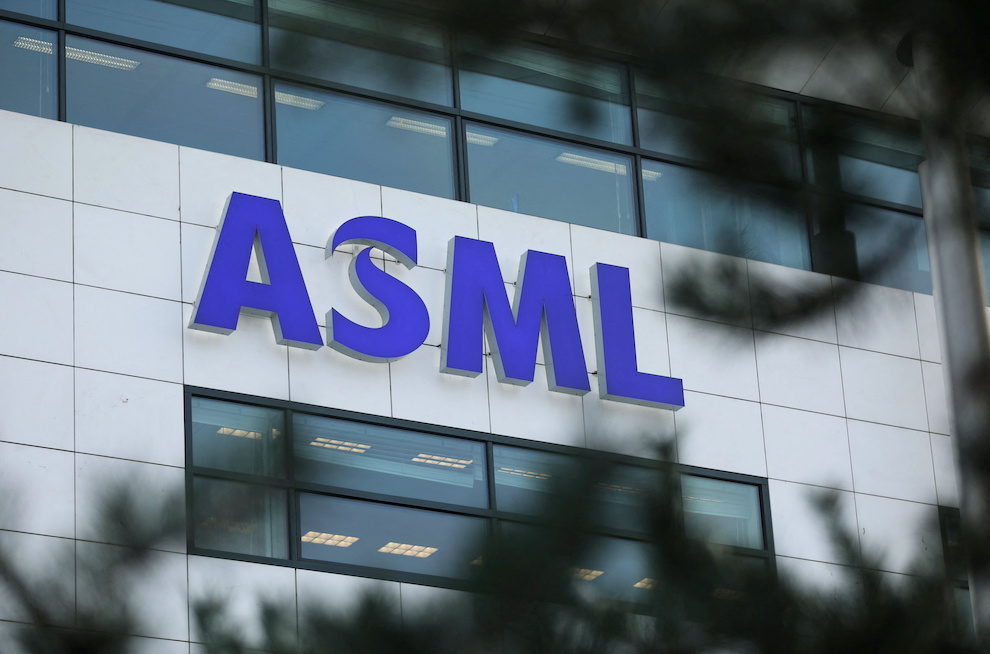
ASML CEO: Legacy Chips from China Vital for Global Tech In a recent interview with German business newspaper Handelsblatt, ASML CEO Peter Wennink highlighted the critical role that legacy chips produced in China play in supporting global technology. Wennink explained that these legacy chips, often used in older devices and systems, are essential for maintaining current infrastructure and supporting a wide range of applications. He stated that while the global semiconductor industry has focused on producing advanced chips, the demand for legacy chips remains high. China is a major producer of legacy chips, and Wennink emphasized the importance of these chips in stabilizing the global supply chain. He noted that the country has a strong manufacturing base and a significant market share in legacy chip production. “The world needs legacy chips, and China is playing a critical role in meeting this demand,” Wennink said. “Without these chips, we would face significant disruptions in various industries, including automotive, industrial, and healthcare.” Wennink further expressed concern about the potential impact of geopolitical tensions on the global chip supply chain. He emphasized that cooperation and open trade are crucial for ensuring a reliable and stable supply of chips, including legacy chips from China. The ASML CEO’s comments underscore the growing importance of legacy chips in supporting global technology. As the world grapples with supply chain disruptions and geopolitical challenges, securing a stable supply of these essential components is becoming increasingly critical.Chinese Chipmakers’ Focus on Legacy Chips Addresses Urgent DemandChinese Chipmakers’ Focus on Legacy Chips Addresses Urgent Demand Peter Wennink, CEO of ASML, Europe’s largest technology company, has highlighted the importance of older generation chips for various industries, including the German automotive sector. Despite US restrictions on advanced technology, Chinese chipmakers are investing heavily in these legacy chips, raising concerns about the potential for oversupply. According to Wennink, the global demand for legacy chips is increasing significantly. However, Western firms are not adequately investing in their production due to lower profitability. This situation has created a gap in the market that Chinese chipmakers are actively filling. Concerns have been raised about China’s growing share of the legacy chip market, which could potentially lead to an oversupply. However, Wennink argues that alternatives are crucial if production is restricted in any way. The automotive industry, in particular, requires a significant volume of legacy chips. Europe’s dependence on imported legacy chips has become evident, with the continent only able to meet half of its own demand. Industry estimates indicate that Chinese chipmakers will significantly increase their production capacity, representing about a third of global production by 2025. Wennink emphasizes that the focus on legacy chips is not a reason to halt production but rather a need to find alternatives in case of disruptions. He argues that it is counterproductive to prevent the production of essential chips for industries that rely on them.
ASML CEO Peter Wennink has stated that the world requires the older generation of semiconductor chips that China is manufacturing. According to a Handelsblatt report, Wennink emphasized the crucial nature of these chips in various industries, including automotive and consumer electronics. China has been a major producer of legacy chips, which are used in older electronic devices as well as in certain industrial applications. The demand for these chips remains high despite the advancements in the semiconductor industry. Wennink’s comments come amid concerns about the potential impact of the US-China trade war on the global semiconductor supply chain. The US has imposed tariffs on Chinese imports, including some semiconductors, leading to fears of shortages and price increases. ASML, a Dutch company, is a major supplier of semiconductor manufacturing equipment. The company has a large presence in China, where it has been supplying equipment to local chipmakers. In the interview with Handelsblatt, Wennink expressed optimism about the long-term prospects for the semiconductor industry in China. He отметил, что растущий средний класс в Китае будет продолжать стимулировать спрос на электронные устройства, и что китайские компании инвестируют в развитие своих собственных мощностей по производству полупроводников. “We believe that the Chinese market will remain an important growth driver for the semiconductor industry,” Wennink said.
ASML CEO: Legacy Chips from China Vital for Global Tech
Related Posts
Kate Hudson Recreated Her Iconic How to Lose a Guy in 10 Days Scene During the World Series, and I Can’t Ignore the Fans’ Reaction to It
Kate Hudson isn’t just an award-winning one actress with famous parents; she is also a huge baseball fan. So it’s no surprise that she attended this year’s World Series to…
Software Catalog Unveils Array of Cutting-Edge Solutions for Enterprise Transformation
Software Catalog Unveils Array of Cutting-Edge Solutions for Enterprise TransformationSoftware Catalog Unveils Array of Cutting-Edge Solutions for Enterprise Transformation Technology is rapidly reshaping the business landscape, making it imperative for…